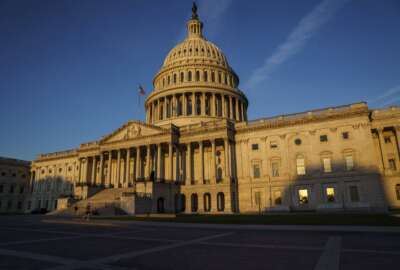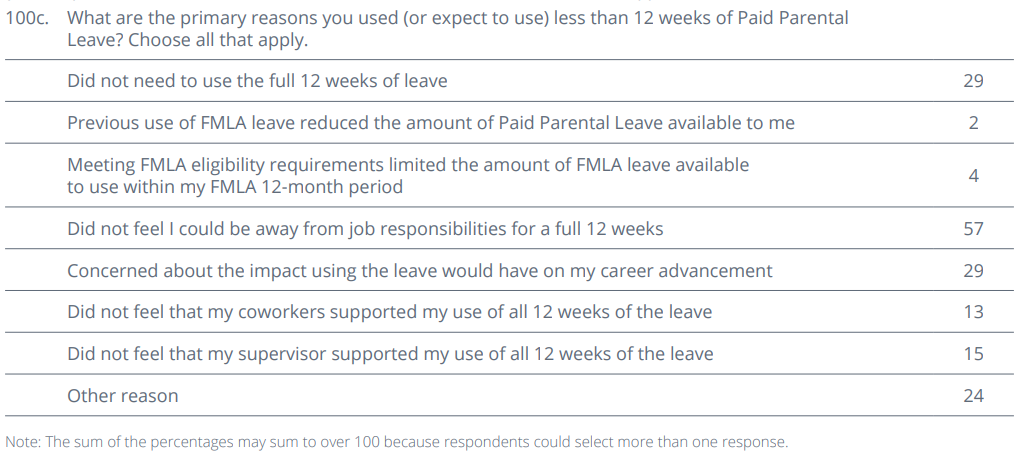
Biden urges agencies to broaden paid, unpaid leave options for federal employees
President Joe Biden directed agency leaders to expand federal employees’ access to leave options, including for family and medical emergencies, as well as in ...
The Biden administration is calling on agencies to expand federal employees’ access to both paid and unpaid leave options.
Agencies should work to broaden both types of leave for the entire federal workforce, including new federal employees, President Joe Biden said in a Feb. 2 memo to agency leaders.
Circumstances when federal employees may need to use leave can include, for example, when individuals need time off for parental duties, for bereavement of the loss of a loved one, for helping family members with critical health conditions and for managing family issues after a family member is called to active military duty.
“The federal government must be a model for providing leave policies, both paid and unpaid, that allow employees time away from work to care for themselves or a loved one,” Biden said in the memo. “Being a model employer includes updating our workplace policies and practices to reflect the emerging needs of our workforce today and tomorrow.”
Notably, federal employees in their first year of working for an agency often have more limited options to take leave, since they may not have been able to accrue enough paid time off, should an event occur. In these circumstances, agencies should promote the use of unpaid leave, according to the memo.
“By supporting federal employees’ access to leave throughout their service, the federal government will strengthen its ability to recruit, hire, develop, promote and retain our nation’s talent and address barriers to equal opportunity, especially with respect to women’s participation in the federal workforce,” Biden said.
Following the initial memo, agencies will have one year to update the White House Gender Policy Council on progress toward implementing the directive. Both the Office of Management and Budget and the Office of Personnel Management are tasked with helping agencies make progress in encouraging feds to use their different leave options.
In recent years, federal employees have seen other expanded leave options, including 12 weeks of paid parental leave for the birth, adoption or foster of a new child. Feds also have the option to use paid leave for parental bereavement for the death of a child.
Along with these options, agencies will also soon get recommendations from the Office of Personnel Management regarding safe leave, under a directive in Biden’s memo. Safe leave gives federal employees access to paid and unpaid leave when seeking safety, and when recovering from domestic violence, dating violence, sexual assault or stalking.
Safe leave would cover, for instance, federal employees obtaining medical treatment, seeking assistance from organizations that provide services to survivors, seeking relocation and taking related legal action, the memo added.
“These and other steps that we’ve taken will make a meaningful difference for workers and for women’s economic security, but there’s obviously more work to do,” White House Gender Policy Council Director Jennifer Klein said in a Feb. 2 press conference.
OPM has additionally collected data on the paid parental leave program for federal employees. In the 2022 Federal Employee Viewpoint Survey (FEVS), OPM surveyed respondents about their use of the program. According to the survey results, 4% of federal employees said they used the program, 81% of whom said they used the full 12 weeks available.
Of those who took off fewer than 12 weeks, 57% said they didn’t feel they could be away from their job responsibilities for that long. Another 29% said they were concerned about the impact that using the leave would have on their career advancement. And 15% said they felt their supervisor didn’t support their use of the full 12 weeks. The survey question allowed for respondents to select multiple options.

Biden’s memo to agency heads also aligned with the 30th anniversary of the Family and Medical Leave Act (FMLA), which lets American workers use up to 12 weeks of unpaid leave for certain family and medical reasons, while being able to continue health insurance coverage and without the risk of losing their job.
Additionally, the Biden administration pointed to a recent update to the Defense Department’s Military Parental Leave Program (MPLP) as another effort to expand leave options in the public sector. Under the recent changes to the program, active-duty service members are eligible for 12 weeks of parental leave following the birth, adoption or placement of a child for long-term foster care. The previous policy gave the birth parent just six weeks of leave, and no extra leave for the non-birth parent.
The American Federation of Government Employees (AFGE) applauded the administration’s efforts, saying Biden’s memo will help federal workers deal with unexpected emergencies, including the death of a family member or recovery from domestic violence.
Copyright © 2024 Federal News Network. All rights reserved. This website is not intended for users located within the European Economic Area.
Drew Friedman is a workforce, pay and benefits reporter for Federal News Network.
Follow @dfriedmanWFED




